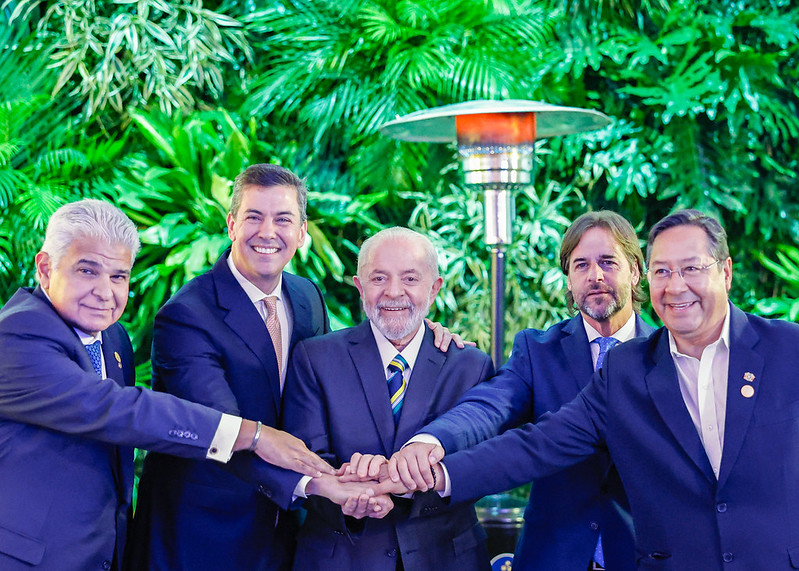The 64th Mercosur Summit: Diplomatic Dynamics and Economic Discussions in Asunción
Leaders and representatives from across South America have converged in Asunción, Paraguay, today to participate in the 64th Summit of Heads of State of Mercosur and Associated States. The event, established to fortify economic and political ties among member countries, takes place at a time of notable diplomatic turbulence. Among the striking developments is the conspicuous absence of Argentina’s President Javier Milei, an event not seen often in the summit’s 33-year history.
Key Absence and Substitution
President Milei’s decision to miss the summit is particularly significant, given that it follows his maiden official trip to Brazil, where he controversially avoided a scheduled meeting with Brazilian President Luiz Inácio Lula da Silva. Instead, President Milei chose to attend the Conservative Political Action Conference (CPAC), aligning himself with far-right Brazilian figures, including former President Jair Bolsonaro. In his absence, Argentina is being represented by Foreign Affairs Minister Diana Mondino. The Minister is expected to engage with leaders from the Mercosur member states to address Argentina’s profound economic crisis.
Calls for Economic Reform
Minister Mondino has been vocal about the need for “greater economic flexibility” in the Mercosur bloc. Addressing this concern on Sunday, she emphasized the necessity of a “shock of adrenaline” to rejuvenate regional trade. The summit is now anticipated to focus heavily on discussions about these proposed economic reforms.
Broadening the Bloc: Bolivia’s Inclusion
A key highlight of the summit is the formal induction of Bolivia into Mercosur. After years of negotiations, Bolivia’s membership was ratified by its Senate last week and signed into law by President Luis Arce. Bolivia’s full membership will become official 30 days after the delivery of the ratification letter, giving the country four years to comply with Mercosur’s standardized laws and regulations. Mercosur will now consist of five principal members: Argentina, Brazil, Bolivia, Paraguay, and Uruguay.
Political Tensions: The Aftermath of Bolivia’s Coup Attempt
The summit is occurring against the backdrop of a failed coup attempt in Bolivia that has deeply influenced regional politics. The majority of regional leaders have condemned the coup and expressed solidarity with President Arce. In stark contrast, Argentina’s government under President Milei has taken a divergent stance, dismissing the incident as a “false” and “fraudulent” attempt purportedly orchestrated by President Arce himself. This assertion, lacking any substantiated evidence, has instigated a diplomatic rift between Argentina and Bolivia, culminating in both nations summoning their respective ambassadors for clarifications.
Bilateral Discussions on the Horizon
Following the conclusion of the summit, Brazilian President Lula is scheduled to travel to Bolivia for bilateral discussions with President Arce in Santa Cruz de La Sierra. The recent political crisis in Bolivia is expected to be a focal point of their talks. Interestingly, President Lula’s itinerary does not include a meeting with former Bolivian President Evo Morales, despite their historically close relationship. Morales has recently emerged as a political adversary to President Arce, accusing him of dishonesty regarding the coup attempt.
The ongoing Mercosur summit in Asunción represents a critical juncture for the bloc’s future, as it navigates these economic and political complexities. The outcomes of these discussions may well shape the region’s economic landscape and diplomatic relations for years to come.
For more details on the summit and the member countries, visit Mercosur’s official website.
